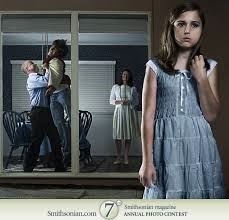
As a boomer growing up in the Leave it to Beaver age, it was not until I practiced estate litigation exclusively that I learned to recognize dysfunctional families and the mess that they leave behind (typically my clients).
In discussing the family dynamic with many clients, it became apparent that many of them did not actually realize they were in a dysfunctional family until many years later, after years of therapy and looking back.
There are certainly recognizable patterns and traits that many of these clients will reveal in their history that could lead to no other conclusion than they came from a dysfunctional family.
The fact that they are in my office, having been disinherited, is usually just the last straw of a straw house.
The will is the last kick from the grave.
Common Characteristics of a Dysfunctional Family
- The children are simply the product of long conflict and their life history is often one of going from one conflict or bad relationship to another. The conflict may present itself as everything from passive- aggressive to overly angry responses to relatively minor things said or done. The conflict is usually most intense and noticeable around family members.. Resentment to the world at large is often displayed.
- Perfectionism and general frustration with imperfection is a surprisingly common trait that is often a reflection of low self- esteem , or trying to meet unrealistic expectations towards other family members initially, and then towards others.
- Various addictions such as drugs, alcohol, gambling , promiscuity and the like are common amongst one or more members of the family . The addiction issues invariably cause major disruption within the household ranging from emotional to financial to lack of communication.
- Abuse of all nature is rampantly abundant in dysfunctional families. While the abuses can be sexual and physical, they are invariably extremely emotional , demeaning and hurtful in their nature. The victims of the abuse are often singled out and picked on by usually one or both of the parents, although there appears to be a surprisingly large amount of physical, sexual and emotional abuse that goes on between siblings while living at home.
- If it is apparent that all of the family members share the same interests and beliefs , such as rigid church attendance, then there is a high probability that one or both of the parents is highly controlling and manipulating the others. This is called a lack of diversity in common interests and is a often a sign of dysfunctional families.
- Overly controlling parent(s) can certainly be indicative of a dysfunctional family . Examples might be a parent not allowing their children to see friends after school, participate in school events, or do anything other than come home and clean their room. One spouse may control the other spouse , which invariably spills over unto the children and can result in stunting their emotional growth . It is difficult to express one’s opinion and individuality in such a controlling environment , leaving the controlled person feeling guilty and unworthy.
- Fear and anxiety are often common traits caused by the unpredictability of the dysfunctional family household . Not knowing if the rent will be paid, food on the table, or if violence will erupt at any time is extremely stressful. The fear is often caused by one particular family member, but may be caused by more
- Communication amongst family members is often strained at best, let alone nonexistent or evasive or hostile . Family members never learned how to express their needs and wants to each other or were picked on or were favored by parents any of which can lead to misunderstandings, anger and estrangement .



